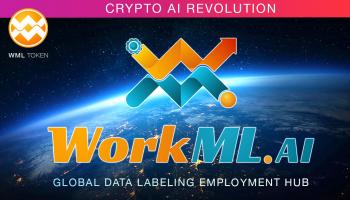Social Platforms Are Getting an Update Thanks to New Data Privacy Laws
Photo by Shane Rounce on Unsplash
In April 2018, Mark Zuckerberg testified before Congress regarding the role Facebook played in the Russian interference of the 2016 US elections.
According to investigators, the world largest social media platform allowed users’ data to be harvested illegally and sold to Cambridge Analytica, a political consulting firm whose use of this data is still being investigated.

Following the scandal, an international conversation sparked about the necessity for personal data privacy and security. While the regulatory landscape is changing rapidly, consumers are also becoming aware of their rights to data protection.
One law that is setting the pace for the new approach is the European General Data Protection Regulation (GDPR). The law, which came into effect a month ago, requires all businesses operating within the European Union and in the European Economic Area to get consent from data owners before using their data.
Some of the rights granted by the law to individual data owners include the right to be informed when their data is used, the right to data erasure after the specified purpose is met and the right to request the restriction or suppression of their personal data.
These stipulations indicate the end to the traditional social media model where profit is made by exploiting user’s data and selling it to advertisers. Facebook and Google have already encountered issues with the GDPR with The Verge reporting that the two companies are facing lawsuits amounting to $8.8 billion, filed on the first day of the legislation implementation.
Thus, for the traditional social media giants to survive, they must adopt a strategy that encourages users’ to share their data while ensuring a high-level data security. So far, there is no technology that provides a better solution than the blockchain.
How Blockchain Can Help
The distributed ledger technology allows social media users to share value directly with each other without relying on intermediaries. This means that social media users have control over whom they share their data with, and can receive payment for the data they choose to share.

Without the middlemen, data owners are able to make a significant income from their data while the advertisers are able to save on costs. Centralized social media platforms such as Facebook and Twitter act as intermediaries between data owners and businesses, offering little value to the latter and imposing huge advertising costs on the former.
Another advantage of the decentralized social media model is security. Blockchain applies cryptography to secure data making it nearly impossible for hackers to gain access. The distributed nature of the technology ensures high-level transparency which means that social media platform users’ can trace where and how their data is utilized.
While Facebook and Twitter are still in the initial stages of blockchain exploration, some giant social media platforms such as Ask.fm and Telegram have already made a bold move in the area. Ask.fm is the world largest social Q&A platform with over 215 million users and a daily registration average of 500,000 users.
Through the blockchain, the Ask.fm project intends to make it possible for users to get paid directly for their contributions on the platform. Unlike the old Q&A model where the platform owners get all revenue and users’ get nothing, the blockchain-powered model rewards everyone.
For those who provide answers, the earning is dependent on the popularity of their answers, therefore, if they are to make any money, they have to consistently provide quality for their ratings to be high. The platform will be ad-free meaning that the only way for brands to reach potential customers through the platform will be by creating expert content.
Telegram, the messaging app with over 200 million users, is another big social media platform that is turning to the blockchain. Apart from enabling its’ users to interact in a secure way, the platform intends to enable them to exchange value in an easy and transparent way as well.
While the traditional social media companies may perceive blockchain as a threat, it is truly an advantage when seen from the data security perspective. The traditional model is usually highly prone to cyber attacks and with the changing data privacy regulatory framework this can mean significant preventive and remedial costs.

















































